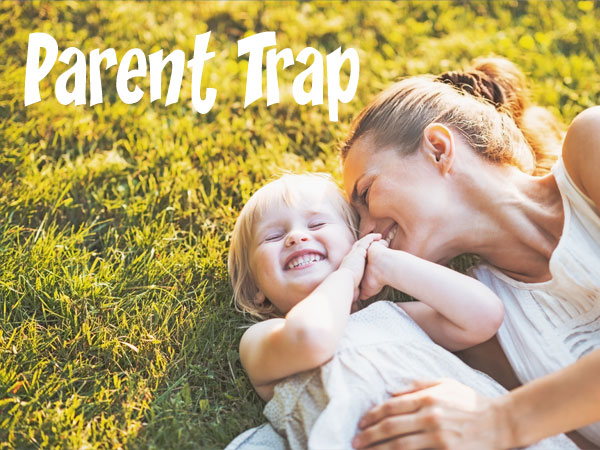One of the most aggravating jobs of parenting is dealing with sibling rivalry. And all too often the dynamic becomes sibling-parent-sibling conflict when parents get enmeshed in the skirmishes.
The most common scenario I hear sounds like this: Mom hears kids fighting over a toy, comes rushing in with a head of steam, makes a snap judgment about who’s right and who’s wrong and who started it, and then punishes the person she deems the perpetrator. Thus, mom has taken on the roles of judge, juror and executioner.
The potential payoff for kids in keeping this cycle going is that it’s possible and fun to get their sister in trouble, and also to feel a sense of control from pushing both their sibling and parent’s buttons and getting a response. It also just becomes the way many families do business: the way they handle feelings and conflicts, and the way they connect.
The best way to change this cycle is for Mom and Dad to change their intention. It’s imperative for parents to show their kids, with their words and actions, that these sibling conflicts are no longer the responsibility of the parents. It’s not their fight; they don’t care who started it or who’s right or wrong. Their only intention when getting involved is to teach their kids how to solve conflicts peacefully and effectively.
So parents can act as mediators, guiding their children in a process of solving arguments. Their job is to get kids to each speak their needs with authority, listen to the other side’s concerns and needs, and then create a win-win agreement that works for both of them. Kids will take this responsibility more seriously when they know that the parents will put them in the same boat and not take sides.
This approach requires parents to stay calm, get down on their children’s level when mediating, and direct them to dialogue with each other, not with the parent. Sometimes kids are too heated to be willing to negotiate in good faith, so the parent can table the discussion until cooler heads prevail.
I also have observed that the homes with the most intense sibling rivalry are the ones with parents who fight, are angry and yell a lot, and where there is a lot of stress and tension. Kids tend to mirror the adults around them, and their anger becomes the reaction to their environment.
Dr. T. Berry Brazelton taught me years ago that the sibling relationship is a two-sided coin: on one side is the sibling rivalry and conflicts, and on the other side is sibling caring. If you interfere too much in the rivalry side, you are taking away from the caring part of their relationship. Working through disagreements brings more closeness and trust, and you don’t want to get in the way of that.
Taking yourself out of the dynamic lessens the amount and intensity of conflicts tremendously. And you’ve taught your children a template for resolving conflicts that will carry over to friends and, eventually, romantic relationships. Your home will become less of a battle zone, and there will be more time for fun and togetherness.
[Tim Jordan, M.D., is a Behavioral Pediatrician who specializes in counseling girls ages 6 through college. For more information, visit drtimjordan.com.]







